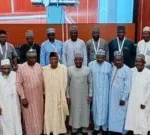By Collins Yakubu-Hammer
Mr Ebenezer Akarah, Chief Executive Officer/Founder, Bricks to Crib Company, has urged the Federal Government to prioritise the Charcoal industry and accord it similar attention given to the Oil and Gas sector.
Akarah made the call in an interview with the News Agency of Nigeria (NAN) on Saturday in Abuja.
”Imagine if Nigeria treated charcoal with the same seriousness as crude oil, complete with production quotas, export benchmarks, and even a national revenue allocation formula.
He noted that Nigeria had Upstream Petroleum Regulatory Commission (NUPRC), the Midstream and Downstream Petroleum Regulatory Authority (NMDPRA), and the NNPC Limited.
According to him, all are under the Petroleum Industry Act and benchmarked against Brent crude. Every barrel is tracked from wellhead to wallet.
He alleged that oil theft drained billions, adding that cocoa and cashew flounder under weak policies.
“Charcoal, legalised for export since 2023, now suffers from poor communication and enforcement fueling underground trade instead of sustainable growth.
“So, what if Nigeria gave charcoal just 20 per cent of the seriousness reserved for crude oil? We wouldn’t need an NNPC for charcoal.
“We will just need clarity: assign it to a specific sector, define responsibilities, set standards, communicate and enforce consistently.
“Charcoal doesn’t need to be the new oil. It only needs structure, transparency, and sustainability.
“This is because, in the end, whether for cooking, heating, or export black gold doesn’t always come in liquid form,” Akarah said.
He explained that cocoa has its ecosystem; the Cocoa Farmers Association of Nigeria (CFAN), the Cocoa Research Institute, and the International Cocoa Organisation guiding prices and production.
He added that gas also had its decade of initiative, complete with aggregators, export targets, and policy blueprints.
“But where does that leave charcoal?. Nigeria has the National Charcoal Producers, Dealers, Exporters and Afforestation Association of Nigeria (NACPDEAN) , an umbrella body advocating order in the trade.
“Yet beyond this, the sector is largely informal. What is missing is a structured framework, clear rules, enforceable standards, and a value chain that could transform charcoal from a rural hustle into a national asset,” he said.
According to him, Nigeria is not alone in producing charcoal, but it stands out for not knowing exactly where the commodity belongs.
He noted that other African nations like Kenya, Uganda, Tanzania and Namibia had already given it a home.
Akarah pointed our that in Nigeria, charcoal floats in limbo not forestry, energy, or agriculture.
“Officially, it sits under the Ministry of Environment for licensing, but there’s no dedicated policy framework or regulatory clarity.
“If Nigeria borrows models from Kenya, Uganda, Tanzania, or Namibia, it could finally “house” charcoal properly.
“Forestry could claim it; tying it to afforestation and sustainability. Energy could regulate it as a domestic fuel source. Agriculture could oversee it as an agro-commodity. At the very least, it deserves a defined home.
“Charcoal is not just about money. Formalising the trade could promote sustainable forestry, create rural jobs, and strengthen environmental governance in producing states like Kogi, Kwara, Oyo, and Nasarawa,” he said.(NAN)
Edited by Isaac Aregbesola












